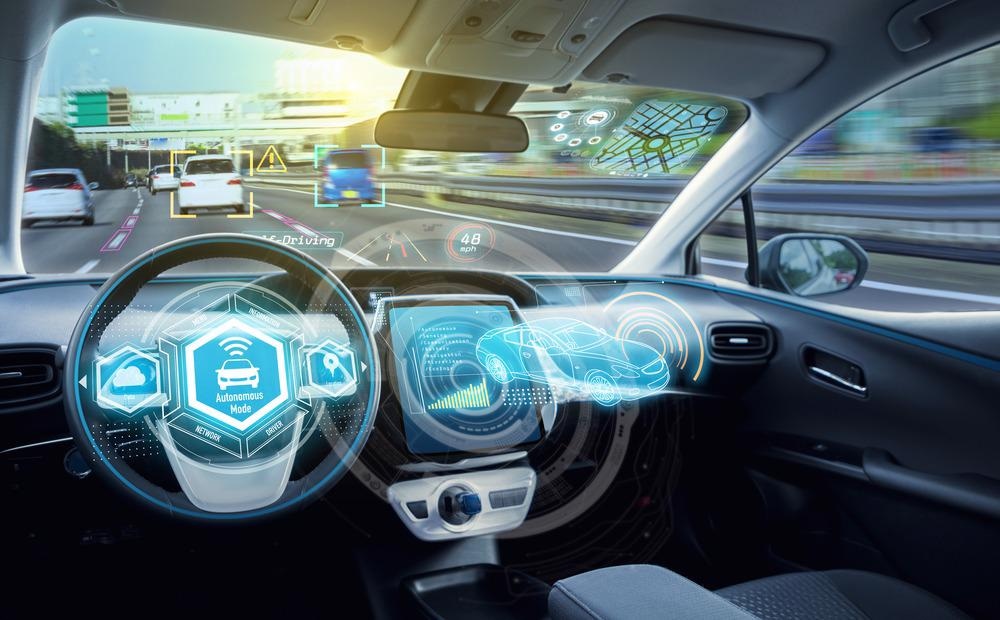
Image Credit: metamorworks/Shutterstock.com
A US-based self-driving car developer, part-owned by Ford Motors and Volkswagen, could be set to redirect focus in the nascent – and turbulent – LiDAR sensor industry. Argo AI developed the new LiDAR sensor for autonomous cars in-house, following a recent acquisition.
New LiDAR Sensors for Autonomous Cars
The new sensor uses LiDAR technology to create a 3D digital map of its physical surroundings. Argo’s promising contribution to LiDAR technology has been developed for the autonomous vehicles (AVs) that the company makes.
More accurate than ever before, the sensor reportedly enables safe self-driving speeds of 65 mph. This means that future Argo AVs equipped with it could safely travel on highways, enabling the company to target the logistics and freight industries by developing self-driving trucks.
There are currently only a handful of LiDAR sensors available for self-driving cars, and they tend to be developed and produced by single-product or single-technology engineering companies. There are also competing LiDAR technologies, but Argo’s backing from large automotive companies will ensure its approach receives a good share of the market’s interest.
The AV industry is also yet to reach a consensus on sensing technologies in general, let alone on different LiDAR systems. However, Argo’s decision to develop its own LiDAR technology for the AVs it manufactures also represents a potential shift of priorities for the AV industry as a whole.
What is LiDAR?
LiDAR stands for light detection and ranging, and is a type of sensor technology often found in AVs. LiDAR sensors enable AVs to see around them – making a digital map of the physical surroundings in real-time. This in turn enables the onboard processor to make decisions and drive the vehicle.
LiDAR sensors work by frequently firing focused beams of lights away, and then detecting any light that is reflected toward the sensor. If the light is reflected toward the sensor, then it has hit an object some distance away. LiDAR sensors can tell how far away that point on that object is by measuring the time taken between the light leaving and returning to the device.
A LiDAR sensor combines multiple light beams that are sent in different directions – and repeated frequently – to obtain millions of points of 3D spatial data. This data can be visually represented as a mesh. The more points that the sensor can record, the higher the resolution of this digital 3D mesh. In AV applications, higher resolution means better accuracy – and safer vehicles.
The benefits of LiDAR sensors for autonomous cars – as argued by proponents of the technology – are the potential for a long-range of operation, speed, and accuracy. LiDAR is especially accurate during precipitation and in low light conditions. In these adverse conditions, other AV sensing technologies such as cameras struggle to perform as well.
Big Changes in the LiDAR Sector
Currently, there are two main types of LiDAR sensor in development and prototype use for AVs: mechanical and solid-state. Mechanical sensors such as Argo’s are a more established technology with a much higher degree of accuracy. Solid-state sensors are the more emergent LiDAR technology. Although they are cheaper and lighter, they are much less sensitive.
Mechanical sensors are usually designed to sit on top of AVs and look like a large box or siren. These devices spin the light source in a circle mechanically, and so are able to collect spatial data 360 degrees around the AV. Due to the mechanisms that have to be engineered for this type of sensor, they tend to be much costlier to produce.
Solid-state sensors do not move their light source around at all. Instead, they array light sources to create as wide a view as possible, up to 180 degrees. Because they include no moving parts, solid-state sensors are much cheaper to manufacture. They are also lighter and can be made in a much smaller form.
Ford, which evenly shares 80% of Argo alongside Volkswagen, had previously invested in solid-state LiDAR sensor technology. Velodyne – with USD $75 million funding from Ford – recently announced plans to get a solid-state LiDAR sensor to market with a target price of just USD $500. This, combined with the small form factor that solid-state provides, could make the sensor well-suited for domestic AV production.
However, the significantly higher accuracy that mechanical sensors can provide has clearly trumped solid-state LiDAR’s benefits for Argo. The relatively unusual approach to in-house development taken by the company further signals its support for the older technology.
It also signals a potential breakaway from the view of the wider AV industry, inevitably dictated by its largest and most outspoken consumer manufacturer – Tesla. Tesla is notoriously dismissive of LiDAR sensor technology, instead of using cameras as the basis of both their semi-autonomous and autonomous driving systems (Autopilot and Full Self-Driving).
Developers such as Argo – with investment from large car manufacturers – may win the conversation with LiDAR's superior performance and accuracy. Argo’s own contribution to LiDAR technology further strengthens the case for it.
References and Further Reading
Pilkington, Ben (2020) Velodyne LiDAR's Velarray H800: Providing Self-Driving Cars with Improved Vision. AZO Sensors. [Online] https://www.azosensors.com/article.aspx?ArticleID=2107.
Vousden, Mike (2021) New Argo LiDAR Sensor Opens Up the Highway to Self-Driving Cars. Just Auto. [Online] https://www.just-auto.com/features/new-argo-lidar-sensor-opens-up-the-highway-to-self-driving-cars/
Disclaimer: The views expressed here are those of the author expressed in their private capacity and do not necessarily represent the views of AZoM.com Limited T/A AZoNetwork the owner and operator of this website. This disclaimer forms part of the Terms and conditions of use of this website.